6 MBA Programs to Launch Your Career in the High Tech Industry
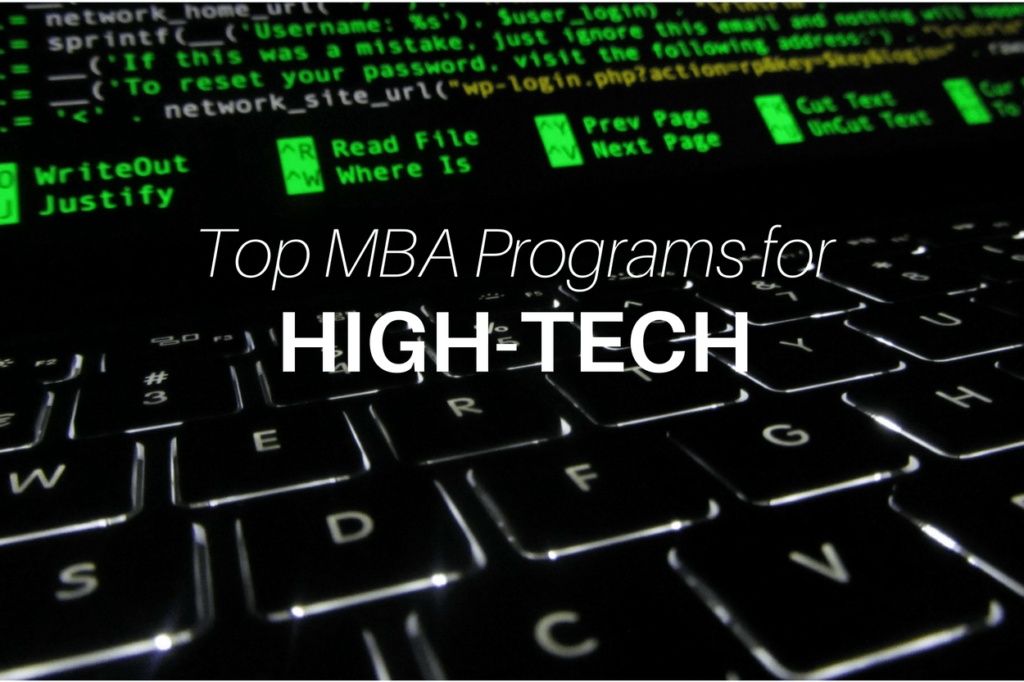
Written by Molly Ellison. Photo courtesy of Christiaan Colen via Flickr.
What began with a few computer wizzes in garages and dorm rooms has grown into one of the world’s largest – and most pervasive – industries. The technology sector, led by Silicon Valley evangelists and the like, has transformed the way we do nearly everything. So, it’s no surprise that as the industry’s employment numbers continue to boom top b-schools are sending grads to companies like Amazon and Google in droves. And, the Bay Area is no longer the only place where you can land a job. Opportunities are popping up across the U.S. and MBAs offer a skillset that leading tech firms are looking for. So, what are you waiting for?
It’s hard to find a more trendy and financially lucrative industry than high tech. In the U.S., the sector grew by 2% from 2016 to 2017, and its average salary is more than double the national average across all industries. Cities outside of the bay area also experienced significant job growth in the sector in 2017, including Austin, Seattle, Denver, and Charlotte.
It’s easy to blur the lines between the best MBA programs for high tech versus entrepreneurship as there is certainly overlap in careers. But, the two paths require different skillsets. This guide is for those who want to work for already-established tech companies like Amazon or IBM, rather than those hoping to launch their own endeavors.
We emphasize employability, so all our schools boast impressive industry employment stats. The University of Washington’s Foster MBA takes the cake with more than 1/2 of its grads entering the industry. We also only included programs that offer a track or specialized degree in technology. These targeted curricula give students a foundation that will help them thrive in the tech industry.
Our list only includes schools in the U.S. because of the industry’s strong foothold in the country. Leading employers such as Apple, Amazon, Google, Facebook, and Microsoft have offices in several American cities and were all founded in the country. There are international programs that send grads to successful careers in the industry, but the U.S. schools we’ve featured show exceptional results.
- THE BEST FULL-TIME MBA PROGRAMS FOR A CAREER IN HIGH TECH
- HONORABLE MENTIONS: OTHER HIGH TECH MBA PROGRAMS TO CONSIDER
- HEAD TO HEAD – WASHINGTON FOSTER MBA vs. TEXAS MCCOMBS MBA vs. BERKELEY HAAS MBA vs. NORTHWESTERN KELLOGG MBA vs. GEORGIA TECH SCHELLER MBA vs. CARNEGIE MELLON TEPPER MBA
- WHAT DO YOU THINK?
The Best Full-Time MBA Programs for a Career in High Tech
University of Washington – Seattle, Foster School of Business (Foster) – Touch MBA Interview
Seattle, Washington, United States
Seattle is known for its grunge scene, stunning mountain scenery, and for being the birthplace of two of the most well-known tech giants, Microsoft and Amazon. It’s still one of the leading U.S. cities in the tech industry, so it’s no surprise that more than half of Foster MBAs pursue careers in the sector. In addition to offering a robust full-time MBA program, the school has a Technology Management MBA geared toward established professionals in the field.
Technology in the Classroom
Full-time MBA students can take electives including “Software entrepreneurship,” “Technology Commercialization,” and “Data-driven Marketing.”
Do you already have some experience working in the industry, but are looking for something to set you apart from your peers? If so, Foster’s accelerated 18-month Technology Management MBA may be for you. Nearly 80% of the Class of 2019 already work for tech companies and average 11 years of work experience.
Technology Outside the Classroom
Foster’s mentorship program connects MBAs with established professionals who can help them navigate the competitive tech industry. Students can also join industry-focused clubs like Foster Tech and the Entrepreneurship & Venture Capital Club.
Where Do Grads End Up?
More than half – 52% – of the Class of 2017 landed jobs in the industry. Nearly all – 86% – stayed in the Seattle area, too. Top hiring companies in 2015 and 2016 include Amazon, Dell Inc., Facebook, Google, Microsoft, and Salesforce.
Technology in Practice: A Foster MBA’s Success Story
Earl Kim, MBA ‘17, spent eight years in the U.S. military before going to business school. After connecting with Microsoft through on-campus recruiting activities, he landed an internship with the company. He launched his post-MBA career as a Finance Manager with the company.
The University of Texas at Austin, McCombs School of Business (Texas) – Touch MBA Interview
Austin, Texas, United States
In recent years, Austin has been on the rise. Not only is it a live-music mecca and home to one of the largest festival scenes in the country, but it’s also a booming tech hub. In 2017, Forbes ranked the Southwestern city third in the country for tech job openings. Amazon, Google, and Facebook all have offices in Austin, in addition to the slew of start-ups that have set up shop in recent years. The Texas MBA offers multiple concentrations in the field and a host of electives to prep students for high-tech careers.
Technology in the Classroom
Of the 23 MBA concentrations Texas offers, four are related to the tech industry: High Tech Marketing, Marketing Analytics and Consulting, Business Analytics, and Information Management. Students can choose from a robust lineup of electives, ranging from “Data Analytics and Dynamic Pricing,” to “Data Mining for Business Intelligence,” to “Marketing High-Tech Products.”
Technology Outside the Classroom
MBA students can join clubs like the Graduate Business Technology Group. Through its Global Connections program, students visited tech companies in Southeast Asia in 2017. MBA candidates can also go on Career Treks in the U.S. to visit companies.
Where Do Grads End Up?
One-third of the Class of 2016 landed jobs in the tech industry. About two-thirds – 63% – stayed in the Southwest post-grad.
Technology in Practice: A Texas MBA’s Success Story
Kyla King, MBA ‘13, worked in healthcare before coming to Texas for her MBA. Post-grad, she landed a job at Cisco Systems and is now Manager of Business Development at AppDynamics.
The University of California Berkeley, Haas School of Business (Berkeley Haas)
Berkeley, California, United States
Berkeley Haas is only a stone’s throw away from the tech industry’s mecca – Silicon Valley. More than one-third of its MBA grads land jobs in the industry with employers including Adobe, Facebook, Google, and Microsoft. The b-school complements its robust technology concentration with co-curricular offerings that tap into the extensive (and accomplished) Berkeley Haas network.
Technology in the Classroom
Berkeley Haas offers a Technology area of emphasis for MBAs. Elective offerings include “International Trade and Competition in High Technology,” “High Technology Marketing Management,” and “Strategy for the Information Technology Firm.”
Technology Outside the Classroom
The Berkeley Haas executive fellows are a group of well-known Silicon Valley leaders who visit campus, speak with students, and advise the b-school’s dean. Current fellows include Biz Stone, co-founder of Twitter, and Guy Kawasaki, former Chief Evangelist for Apple, among others.
The Haas@Work program gives students hands-on experience in the industry and introduces them to tech leaders. Students can also expand their networks through clubs like the Berkeley Haas Technology Club, Berkeley Digital Media and Entertainment Club, and Haas Innovation Design club.
Where Do Grads End Up?
Nearly 40% of recent grads landed jobs in the tech industry. Top employers for the Class of 2016 include Adobe, Amazon, Cisco, Facebook, Google, and Microsoft.
Technology in Practice: A Berkeley Haas MBA’s Success Story
Kate Benintende, MBA ‘15, used her Berkeley Haas MBA to transition into the tech industry. Post-grad, she landed a job as Senior Strategy Lead for Google at its Mountain View, California, headquarters.
Northwestern University, Kellogg School of Management (Kellogg) – Touch MBA Interview
Evanston, Illinois, United States
Though Chicago isn’t as much of a tech hotspot as some of the other cities on this list, Kellogg’s MBA program sent about one-quarter of its Class of 2017 into the industry. In addition to offering a Data Analytics pathway, students can pursue a dual Master’s in Design Innovation from the Segal Design Institute. Its interdisciplinary course offerings give students a dynamic education in the field.
Technology in the Classroom
Kellogg’s Data Analytics pathway gives MBAs an in-depth education in crunching big data for a variety of sectors. The curriculum includes courses such as “Human and Machine Intelligence” and “Programming for Analytics.”
The MBA program also offers special courses that give students hands-on experience in the tech industry. In its “Digital Marketing and Commerce” course, students build and operate online stores with mentorship from professionals at companies including Target, IBM, and Walgreens.
Technology Outside the Classroom
Students can join Kellogg clubs such as the Kellogg Tech Club, MMM, and the Kellogg Design Club.
Where Do Grads End Up?
Twenty-five percent of the Class of 2017 landed jobs in the tech industry. That’s more than double the rate for its Class of 2013, which shows that the school has strengthened its expertise in the field in recent years. Unlike many schools on our list, Kellogg grads spread out across the country post-grad. About one-third of recent grads stayed in the Midwest, while 17.4% went the Northeast and 17.4% moved the San Francisco Metro Area. Nearly 11% pursued careers abroad.
Technology in Practice: A Kellogg MBA’s Success Story
Westin Hatch, MBA ‘14, pursued Kellogg’s dual MBA-Master’s in Design Innovation after a career in product management. He knew that he had a passion for technology and he’s now Head of Service Operations at Qualtrics.
Georgia Institute of Technology, Scheller College of Business (Georgia Tech) – Touch MBA Interview
Atlanta, Georgia, United States
Though Atlanta hasn’t historically been known as a high-tech hub, such skills are in increasing demand in the southern city. Georgia Tech is situated in the city’s “Tech Square” neighborhood, so the campus is next to some of Atlanta’s top tech employers. Georgia Tech is also known far and wide for its engineering program, which gives the Scheller an unique advantage over more traditional business schools. The MBA program offers a concentration in Information Technology Management as well as a track in Leading Innovation. Nineteen percent of Georgia Tech’s Class of 2016 landed jobs in the tech industry.
Technology in the Classroom
The Information Technology Management concentration allows students to take courses including “Electronic Commerce,” “Business Intelligence and Analytics,” and “Emerging Technologies.”
The MBA program also offers immersive tracks that cover a range of niche tech topics. High-tech related ones include Technology Commercialization, Leading New Ventures, Innovating for Sustainability, Business Analytics, Computational Finance, Leading Digital Transformation, and Managing Technology Products.
Technology Outside the Classroom
Georgia Tech is located in the epicenter of Atlanta’s tech scene – fittingly dubbed “Tech Square.” Students are a stone’s throw away from startups, top companies, and innovation centers.
The Management Information Systems Club complements the Information Technology Management concentration.
Where Do Grads End Up?
Nineteen percent of the Class of 2016 pursued careers in the tech industry. Recent employers include Amazon, Cisco, Citrix, GE, IBM, LexisNexis, Microsoft, and VMware Airwatch.
Technology in Practice: A Georgia Tech MBA’s Success Story
Sarah Hsi, MBA ‘15, has pursued a tech career in the transit industry as Chief Information Officer of the Metropolitan Atlanta Rapid Transit Authority. In this role, she managed all technology for the system, which has weekday ridership of more than 200,000.
Carnegie Mellon University – Tepper School of Business (Tepper) – Touch MBA Interview
Pittsburgh, Pennsylvania, United States
Carnegie Mellon University boasts a strong academic reputation, particularly in engineering. Tepper taps into this strength by offering a Technology Leadership MBA track as a partnership with the School of Computer Science. More than 1/3 of the Class of 2016 landed jobs in the tech industry. Though once a fading Rust Belt city, Pittsburgh’s tech scene has been on the rise in recent years with employment in the sector growing by 12% from 2015 to 2017.
Technology in the Classroom
The MBA program offers two tracks that can lead students to the high-tech sector – Technology Leadership and Business Analytics. The Technology Leadership track is ideal for those with engineering and programming backgrounds, as it’s a partnership with the renowned School of Computer Science at Carnegie Mellon. Courses include “Designing for the Internet of Things” and “Strategic Technology to Revitalize Business.”
Technology Outside the Classroom
Tepper offers a range of clubs, including the Business and Technology Club, the Data Analytics Club, the Design and Business Club, and Students at Tepper for Astronautics Rockets & Space (STARS).
The school also hosts the Tepper Tech Innovation Challenge, which allows students to apply “business techniques to products in emerging technologies.” Uber and Cisco were among the 2017 event’s sponsors.
Where Do Grads End Up?
In 2012, about 21% of Tepper MBAs landed jobs in the sector. In 2016, that number had jumped all the way to 33.5%. Recruiting partners in the tech industry include giants like Amazon, Apple, Expedia, and Google.
Technology in Practice: A Tepper MBA’s Success Story
Zachary Talmadge combined his love of working with people and his passion for the tech industry by landing a job at Microsoft post-MBA.
Honorable Mentions: Other High Tech MBA Programs to Consider
The following MBA programs were in our final consideration set. We think you should also take a look:
- Cornell University, Samuel Curtis Johnson School of Management: Cornell offers a one-year, specialized tech MBA at its new New York City campus. The intensive program is aimed at professionals with strong digital experience, and preferably with a background in science or engineering.
- Massachusetts Institute of Technology, Sloan School of Management: Though MIT Sloan is known globally for its tech industry strengths (nearly 1/3 of its students land jobs in the industry), the school’s curriculum focuses heavily on entrepreneurship and is a stronger fit for students interested in this path.
- INSEAD: Nineteen percent of recent INSEAD grads went into the tech sector. And, the school’s international locations give students a global perspective and extensive network. That being said, much like MIT its strengths lie more in entrepreneurship.
- Stanford University, Graduate School of Business: With its prime location Silicon Valley, long-standing reputation in tech circles, and impressive employment stats (1/3 of the Class of 2016 went into tech), we would be remiss to not include the Stanford MBA on our list. B-school students can pursue dual degrees in computer science or electrical engineering.
Head to Head
Read below for a head-to-head comparison of top high tech MBA programs. You can also contact our team to get free b-school selection help.
Washington Foster MBA vs. Texas McCombs MBA vs. Berkeley Haas MBA
Northwestern Kellogg MBA vs. Georgia Tech Scheller MBA vs. Carnegie Mellon Tepper MBA
Last updated January 2017
Washington Foster MBA vs. Texas McCombs MBA vs. Berkeley Haas MBA
| Washington Foster | Texas McCombs | Berkeley Haas | |
|---|---|---|---|
| % of graduates going into field | 52% - Technology Class of 2017 | 33% - Technology Class of 2016 | 38.8% - Technology/telecom Class of 2016 |
| Related coursework | Electives: Software Entrepreneurship Technology Commercialization Marketing High-Technology Products & Services Data-driven Marketing | Electives: Business Analytics and Decision Modeling Strategies for Networked Economy Data Analytics with Data Mining Managing Innovation in a Global Company Marketing Analytics and Information Data Analytics and Dynamic Pricing Analytical Tools for Marketing Decisions Supply Chain Analytics Analysis of Markets Data Mining for Business Intelligence Social Media Analytics Marketing High-Tech Products Marketing Metrics Scientific Marketing Analysis and Implementation Connecting with Customers in a Digital World | Electives: Topics in Operations and Information Technology Management Marketing Analytics High Technology Marketing Management Dynamic Capabilities and Innovation High Technology Marketing Management International Trade and Competition in High Technology Strategy for the Information Technology Firm Opportunity Recognition: Technology and Entrepreneurship in Silicon Valley Innovation Strategies for Emerging Technologies Corporate Strategy in Telecommunications and Media Media: New and Otherwise |
| Related co-curricular opportunities | Mentorship Program Foster Tech Club | Global Connections Career Treks Graduate Business Technology Group | Clubs: Berkeley Haas Technology Club Haas Innovation Design |
| Dual-degree & specialization offerings | Technology Management MBA | Concentrations: High Tech Marketing Marketing Analytics and Consulting Business Analytics Information Management | Concentrations: Technology |
Northwestern Kellogg MBA vs. Georgia Tech MBA vs. Carnegie Mellon Tepper MBA
| Northwestern Kellogg | Georgia Tech Scheller | Carnegie Mellon Tepper | |
|---|---|---|---|
| % of graduates going into field | 25% - Technology Class of 2017 | 19% - Technology Class of 2016 | 33.5% - Technology Class of 2016 |
| Related coursework | Electives: Analytical Consulting Lab Digital Marketing & Commerce NUvention Courses | Electives: Managing Information Resources Database Development and Applications Electronic Commerce Business Process Analysis and Design IT Practicum Emerging Technologies Data Analytics in Business Project Management Business Intelligence and Analytics Business Analytics Practicum | Technology Leadership Specialization Requirements: Mobile and IoT Technology Strategy Commercialization and Innovation: Strategy Technology Leadership Capstone Electives: Cloud Computing for Business Designing for the Internet of Things Intro to Human Computer Interaction for Technology Executives Privacy in the Digital Age Management of Software Development for Technology Executives Agile Methods Commercialization, Innovation: Workshop Strategic Technology to Revitalize Business Managing Intellectual Capital and Knowledge Intensive Business Information Policy and Governance Big Data Marketing Analytics The Art and Science of Prediction Optimization for Interactive Marketing Strategic IT |
| Related co-curricular opportunities | Clubs: Kellogg Tech Club MMM Kellogg Design Club | "Tech Square" Management Information Systems Club | Tepper Tech Innovation Challenge Clubs: Business and Technology Club Data Analytics Club Design and Business Club Students at Tepper for Astronautics Rockets & Space (STARS) |
| Dual-degree & specialization offerings | Dual MBA-MS in Design Innovation Concentrations: Data Analytics | Concentrations: Information Technology Management Immersive Tracks in Leading Innovation: Technology Commercialization Leading New Ventures Innovating for Sustainability Business Analytics Computational Finance Leading Digital Transformation Managing Technology Products | Dual MBA-Master's of Science in Civil and Environmental Engineering Dual MBA-Master's in Software Engineering Tracks: Technology Leadership Business Analytics |
What Do You Think?
While we’ve highlighted some of our favorite tech industry MBA programs, there are so many other great schools out there. Is there another b-school that you think deserves to be featured? If so, let us know why in the comments below.


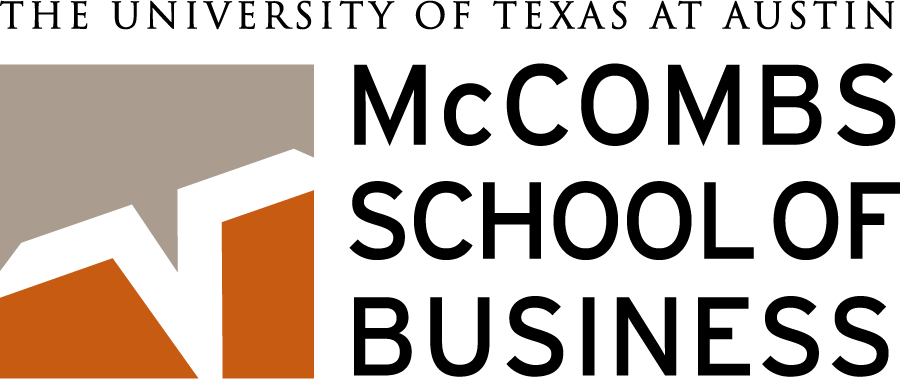
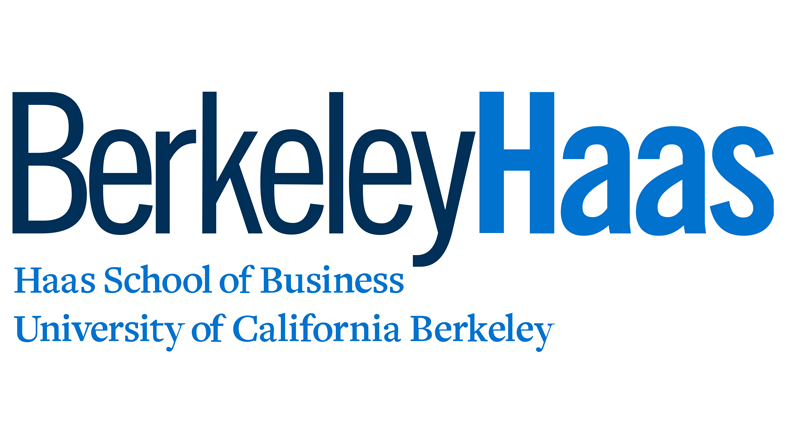
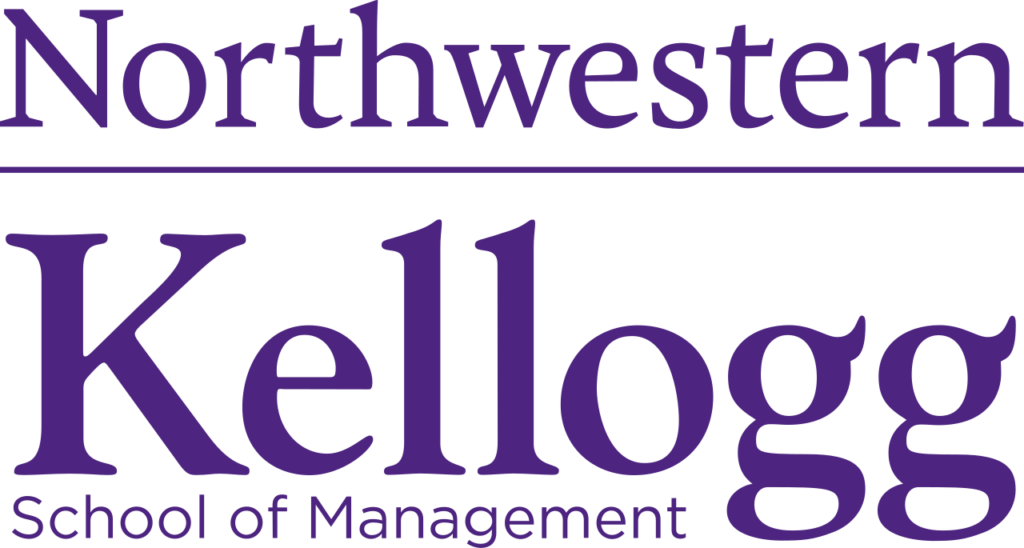

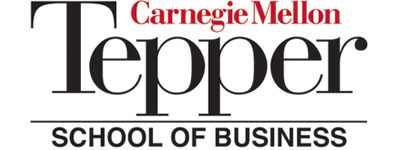

One thought on “6 MBA Programs to Launch Your Career in the High Tech Industry”
UCLA Anderson